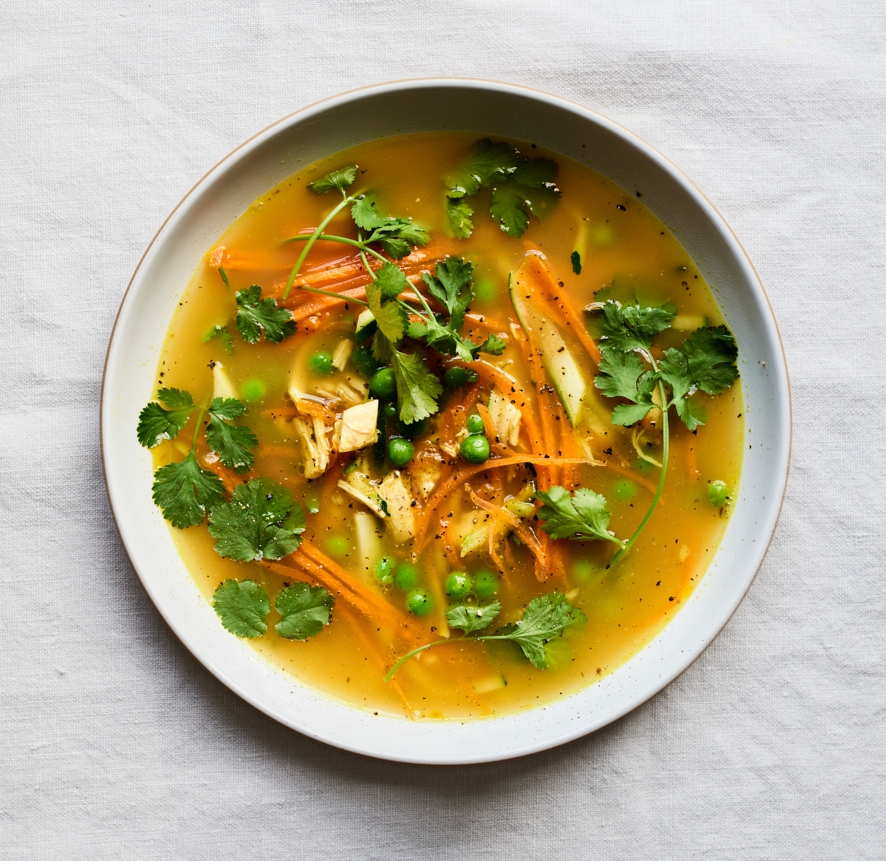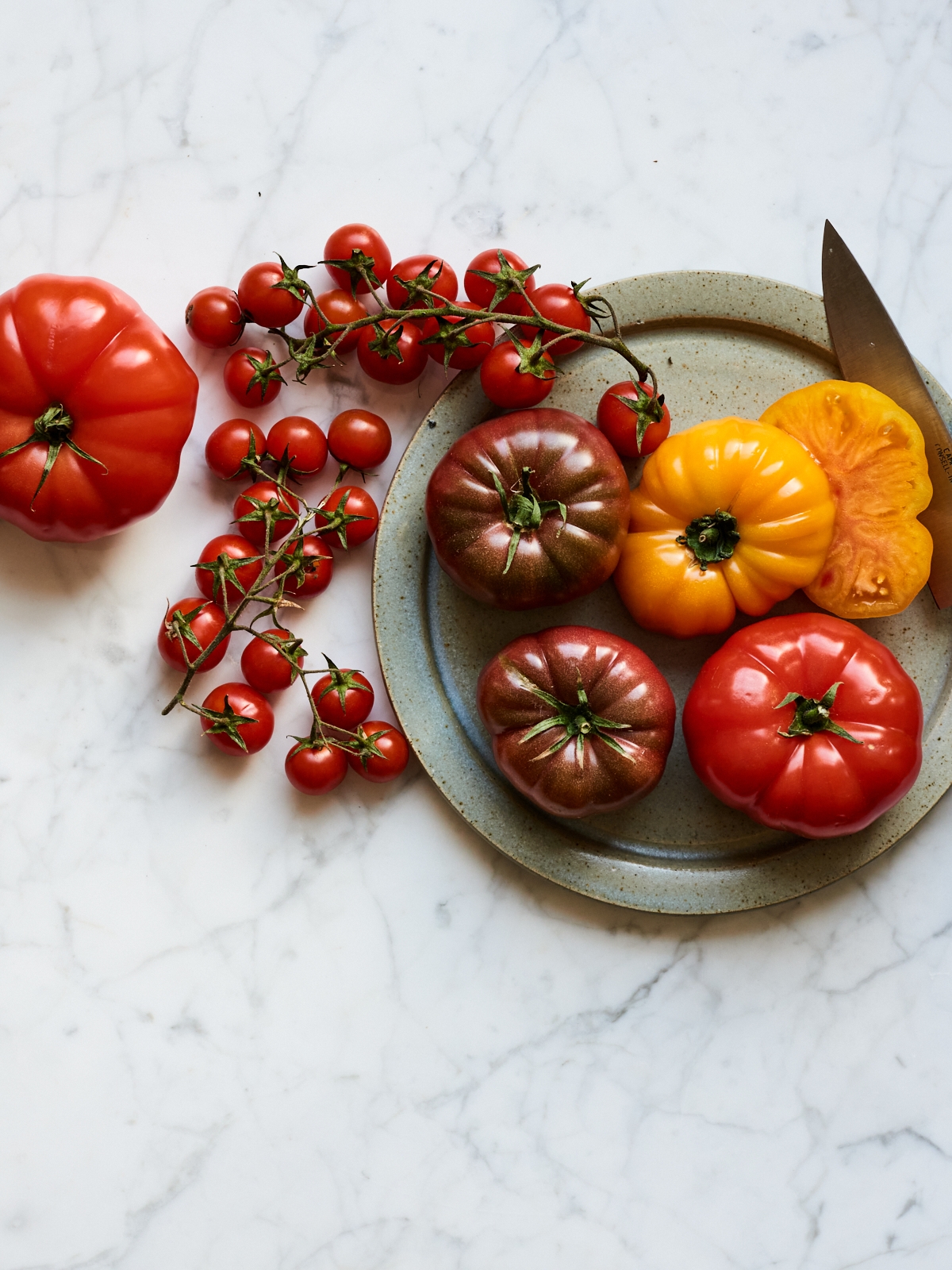21 Jan, 2019
5 small changes to improve your diet
The best diets are those that perfectly balance pleasure with nutritional function, because after all that’s what food is for really, pleasure and fuel! We speak to nutritionist Rob Hobson about the basics of good nutrition and how to set our diets up for success.
FoodThe best diets are those that perfectly balance pleasure with nutritional function, because after all that’s what food is for really, pleasure and fuel! At Detox Kitchen we have always put flavour first, and value nutrition over calories. We ultimately believe that food should bring you instant joy every day and it should make you feel good after eating it.
The pressure of unrealistic health goals often sets us up for failure and despite most of us knowing that diets are normally doomed to fail, we still put ourselves through the rigmarole of trying to stick to them. Don’t get sucked into the latest food and diet trends, which can be very tempting if you’re trying to lose weight. Keep it real and stick to getting the basics right, as the accumulation and commitment to making small changes to your diet can lead to the greatest gains in the long-term.
We speak to nutritionist Rob Hobson about the basics of good nutrition and how to set our diets up for success. Here’s what he had to say:
Rather than focusing on dieting (which is proven to be less than fruitful for most people), commit to a few
simple changes and adopt these as life-long habits that will ultimately have a greater impact on your long-term health. Start with these five basic elements of eating a healthy balanced diet.
Eat more veg!
We’re all familiar with the ‘five-a-day’ message, yet only 30% of us manage to achieve this according to findings from the UK National Diet and Nutrition Survey. Including more veggies in your diet is probably the most significant change you can make to improve your overall health, as research has shown that doing so can lower blood pressure, reduce the risk of heart disease and stroke, prevent some forms of cancer, lower the risk of eye and digestive problems and help maintain blood sugar levels and satiety, which can help with weight maintenance.
It’s not just about one type of veg though. Eating a rainbow of colours adds interest and texture to food as
well as a wider range of vitamins, minerals and other plant compounds that act as antioxidants in the body and help to ward off disease.
Up your fibre intake by eating more plant-based food
Plant-based eating is not just about health. It encompasses many of the wider issues around food production,
which include animal welfare and environmental concerns. Going completely plant-based is not for everyone
but adopting this way of eating once or twice a week is a valuable commitment to these issues and may also help to improve your health.
Beans, pulses and lentils are a great base for plant-based meals as they provide protein and essential minerals such as zinc, magnesium, potassium, calcium and iron. These foods also offer one of the best sources of fibre, which has been shown to reduce the risk of heart disease, type 2 diabetes and bowel cancer as well as helping maintain a healthy weight. Fibre is lacking in the diet of most people with findings from the UK National Diet and Nutrition Survey, showing that only 9% of men and 4% of women meet the recommended daily intake of 30g per day.
Wean yourself off the white stuff
It will come as no surprise that most people eat way too much sugar. The real issue is added sugars, which includes all sweeteners (honey, table sugar, agave and fruit syrups) and fruit juice. The greatest intake of sugar amongst adults in the UK comes from the use of sugary sweeteners, soft drinks, and then chocolate, pastries, biscuits and puddings.
Sugar has fast become the nemesis of good health and the Achilles heel of many people trying to improve their diet and lose weight. The calories from sugar are easy to consume and have been shown to be a major player in the obesity epidemic. The fact that sugar contributes to weight gain means it also plays a role in the development of health problems such as heart disease, certain cancers and type 2 diabetes.
Choose healthy fats
The whole topic of fats in the diet is pretty confusing. Luckily, the bottom line is quite simple - we all know the foods we should be limiting in our diet, such as overly processed convenience foods, puddings, confectionary and other sweet treats. There’s nothing wrong with fat in the diet, but we should be looking to source it from whole foods such as olive oil, avocado, nuts and seeds.
The one group of healthy fats we should all be trying to include more of in our diet are the omega 3’s. These fats have been shown to be very beneficial to health by reducing inflammation in the body and protecting the heart. Oily fish such as salmon are the richest source and should be included in the diet at least once per week. If you follow a plant-based diet then include plenty of foods such as dark green leafy vegetables, quinoa, nuts and seeds. These foods contain a certain type of omega 3, which is converted in the body to a more usable form. This conversion isn’t great so those following a strict plant-based diet may want to consider a vegan omega 3 supplement, which is made from sea algae.
Eat lean proteins
There’s been a lot of fuss about protein over the last couple of years, but the reality is that most of us exceed the recommended daily intake of 0.8g per kilogram of body weight (you can check the amount you need here). Protein is essential for the growth and repair of tissues in the body and the amount we need is influenced by lifestyle.
You don’t need to go crazy for protein and including just a handful with every meal is enough. Lean proteins include chicken and turkey breast (around 25-30g protein), tofu (around 8g per 100g), eggs (6g per egg), black beans (20g per 100g), and lentils (9g per 100g). Keep your meals balanced nutritionally by teaming your proteins with lots of veggies and healthy fats, along with a small serving of complex carbs, which can include brown rice, quinoa, sweet potato or buckwheat.
Our home delivery packages are a great way to re-set your diet. All our packages have carefully balanced macro and micro nutrients to ensure that you are getting everything you need nutritionally, as well as satisfying your taste buds! Find out more about our packages here.



